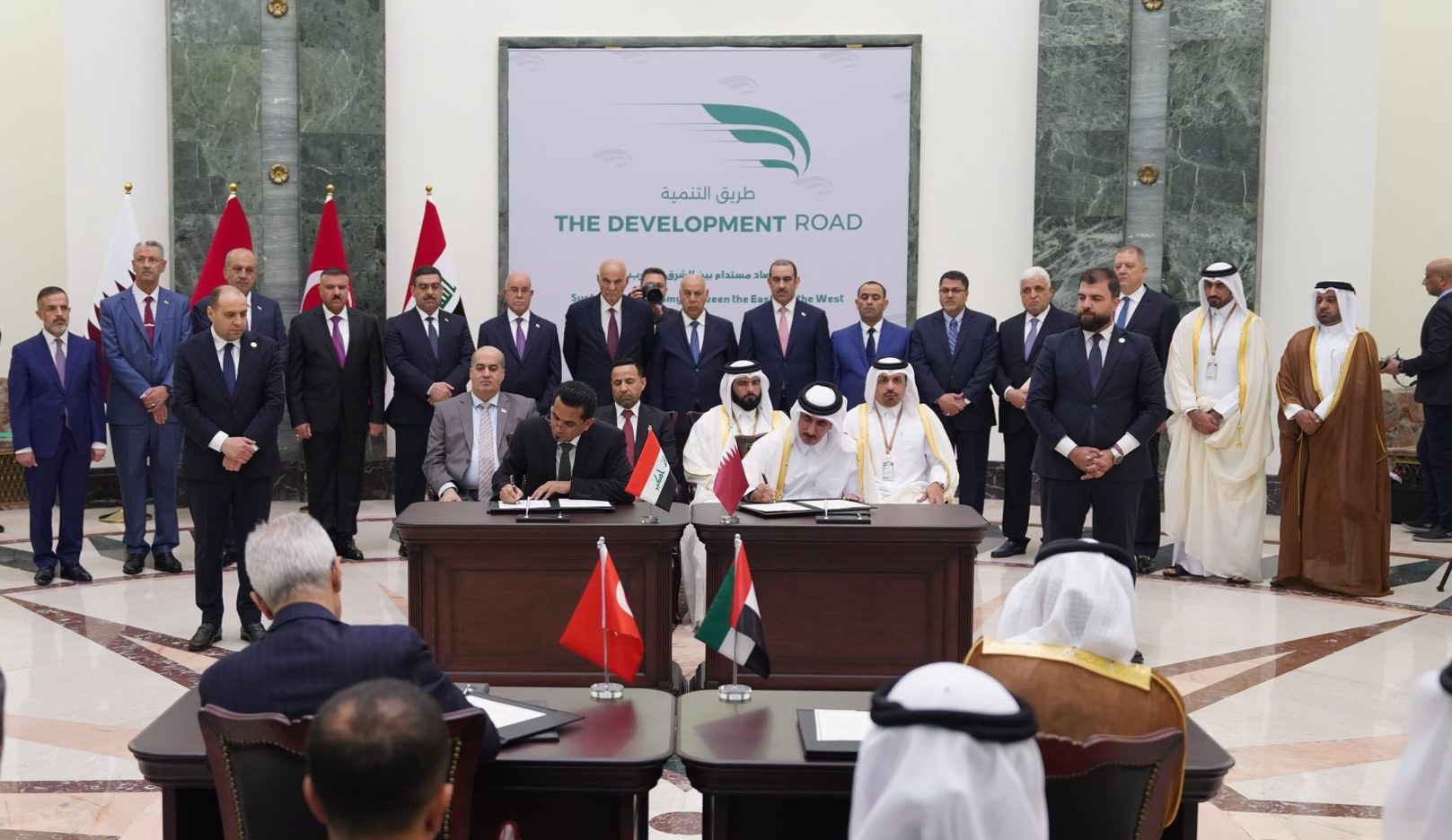The project will be carried out in three phases, with the first expected to be completed by 2028.
Qatar is set to participate in a quadrilateral ministerial summit with Iraq, Turkey and the United Arab Emirates to discuss the Development Road project in Iraq, an initiative aimed at establishing an important link between Iraq and Europe via Turkey, according to reports.
Turkey’s Transport Minister Abdulkadir Uraloglu confirmed that the upcoming summit is slated to occur within the next two months, Turkish media reported on Wednesday.
Qatar, Turkey, Iraq and the United Arab Emirates signed a preliminary agreement on April 22 to establish the Development Road project.
At the time, the signing took place in Baghdad in the presence of Turkish President Recep Tayyip Erdogan and Iraq’s Prime Minister Mohammed Shia Al-Sudani. Qatar was represented at the signing by its Minister of Transport Jassim bin Saif Al Sulaiti.
Addressing the April agreement inked in Baghdad, Uraloglu said that while initially bilateral, concerted efforts from Turkey and Iraq facilitated the inclusion of Qatar and the UAE.
The MoU signed in late April also included the development of Al Faw Port, Iraq’s key port that would be linked to Turkey.
Uraloglu, according to the Turkish reports, went on to highlight ongoing weekly dialogues between Turkish and Iraqi officials.
Anticipating the operationalisation of the Development Road, Uraloglu projected a significant surge in trade between Turkey and Iraq, foreseeing figures soaring from $20 billion to $30 or even $40 billion.
Discussions over Iraq’s ambitious $17 billion project surfaced last year and gained the support of several members of the Gulf Cooperation Council.
Iraq had hosted a meeting on May 28, 2023, with the attendance of the GCC members regarding the project.
At the time, Qatar’s Undersecretary of the Ministry of Transport Hamad Issa confirmed that the regional bloc decided to look into Iraq’s proposal.
“This project has a positive, economic and environmentally sustainable effect in the region,” Issa told Iraq’s news agency at the time, adding that the GCC “will study” the necessary mechanisms.
Al-Sudani had described the project as “an ambitious plan to reshape the economy by utilising strategic economic levers for sustainable growth and prosperity.”
If completed, the project would measure 1,200 kilometres and connect Grand Faw Port, south of Iraq, to the north of the Turkish border and Europe through interconnected railways and highways.
The project will be carried out in three phases, with the first expected to be completed by 2028. The second phase would be completed by 2033 and the third by 2050.
The project would also turn Iraq into a key trade hub while providing it with a much-needed economic boost. The oil sector in Baghdad makes up 90 percent of its revenue with exports accounting for more than 55 percent of its gross domestic product.
Historically, Iraq was known as “the land between two rivers” as it connected the Tigris and the Euphrates, an ancient trade route between the Persian Gulf and the Mediterranean.
Since 1950, Iraq, Turkey and Syria developed the trade route, though it was damaged during the Persian Gulf War in 1991 and faced further disruption in 2003—when the United States invaded Iraq.
For years, especially after the deadly U.S. invasion, Iraq has struggled to rebuild the country and the reconstruction cost $213 billion.
Large sums of money and artefacts were looted during the invasion.







